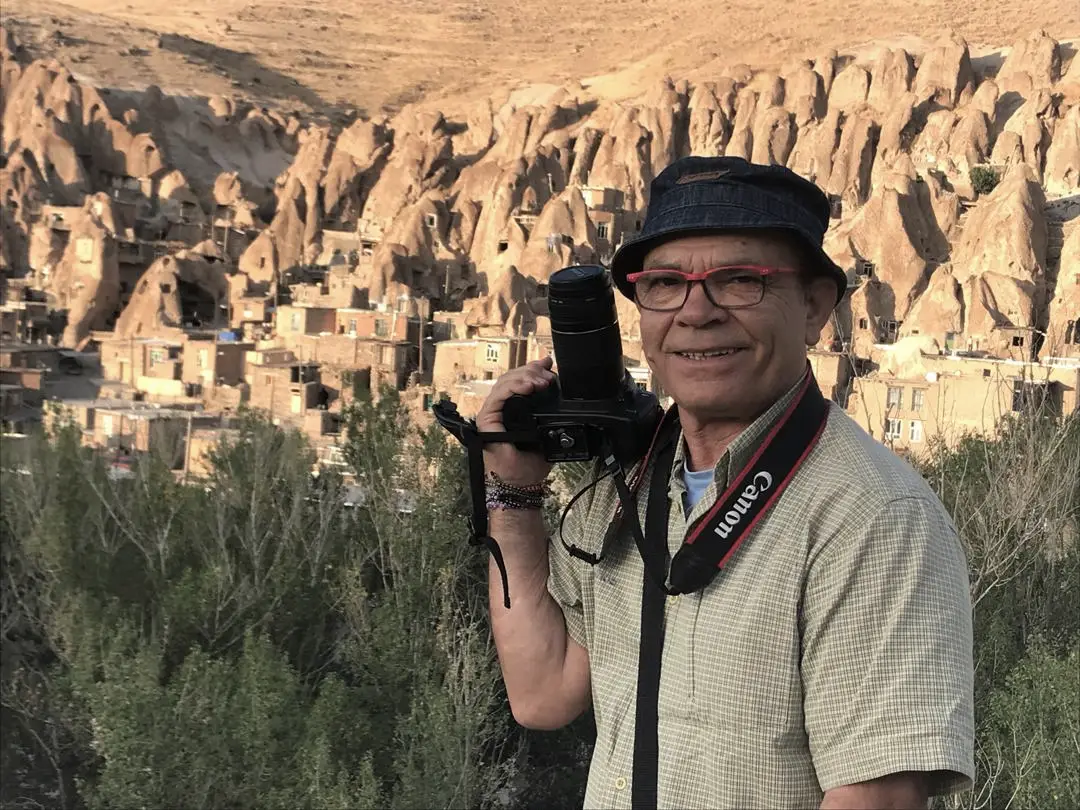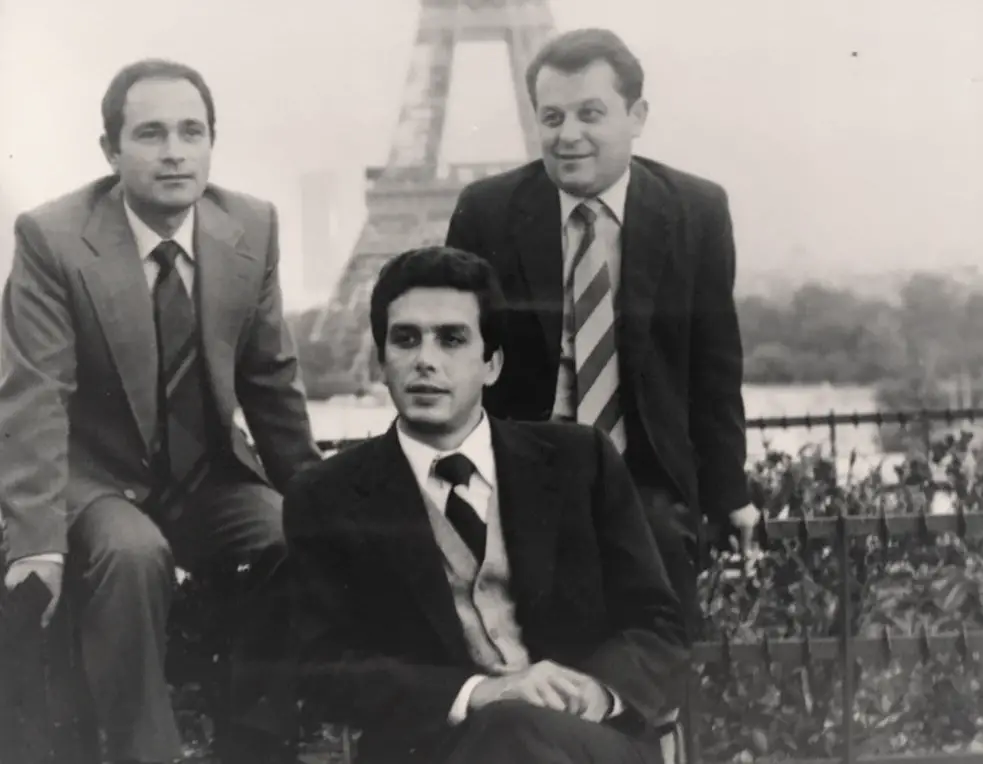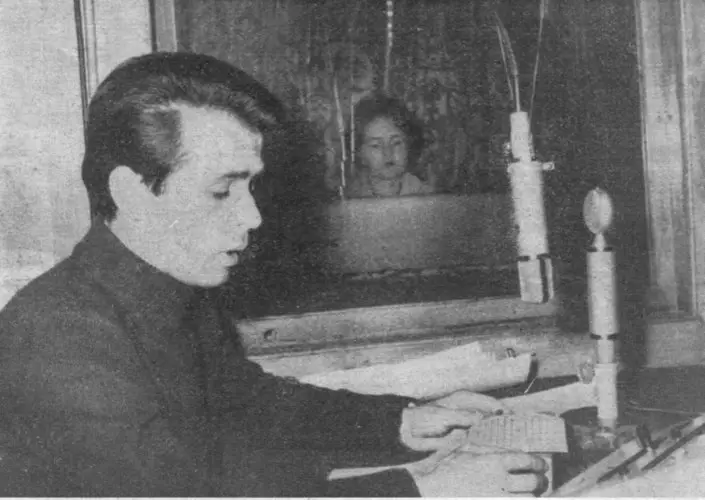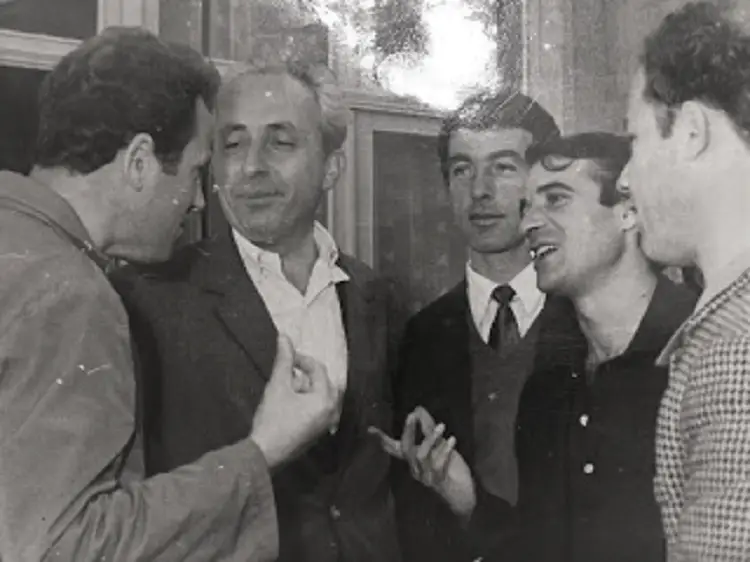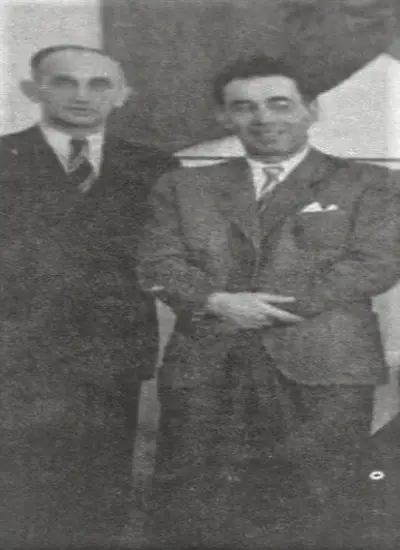By Vasil Qesari
The twelfth part
Memorie.al/ The overthrow of the great totalitarian edifice in Albania would leave behind, not only the change of the system, accompanied by lots of hopes, mirages and cries of happiness but, unfortunately, also many wounds, dramas, victims, dust, milk and disappointments from the most different. Ten years and more after that event, which deeply shook society, completely overturning many previous codes, rules and concepts, people still continue to ask themselves such questions as: What really happened in society Albanian, during the last 50 years of the dictatorship? How was it possible that the system managed to warp everything? Why did people accept it? What was the totalitarian logic of the transformation of society and the individual? How were the structures of totalitarian mechanisms conceived and functioning: propaganda, secret police and the exercise of the ideology of terror? How did it happen that among all the communist countries of Eastern Europe, Albania was considered an exception or a special case? Why did Enver Hoxha remain blindly, fanatically loyal to Stalin until the end, turning the country into a prison where violence, fear and purges continued until the end of the 80s? Why was the country so insanely isolated, locking people up between bunkers and barbed wire? Why, then, did all the above phenomena happen…?! The book “Post-scriptum for Dictatorship” does not claim to provide definitive answers to the above questions, or the complexity of the reasons that brought and maintained the totalitarian power in Albania. Nor is it a complete, deep and comprehensive fresco of the life and suffering that people experienced during that system. Its author, perhaps, has the merit that together with the retrospective view of the totalitarian period as well as the zeal of a passionate analyst, he has tried to turn his head back once again, to give not only his personal memories and opinions, but also to return once again to the vision of that era with the simple philosophy of preserving the Memory and supporting the Appeal to never forget the well-known maxim, that…the corpse’s nails and hair continue to grow even after death! Ten years or more after the great revolution, the book in question has current value and we hope it will be appreciated by the reader because, as an Albanian researcher also says… the greatest evil that can happen to a people comes when he fails to analyze his own past. An amnesic people are forced to be constantly neuropathic and repeat their painful experiences…!
Neighboring enemy countries had further intensified the revisionist-imperialist propaganda, erecting powerful reinforcements around the borders, which made it possible to track their broadcasts in many areas of the country. In the new circumstances, that is, of the poison and sugar pills that external enemies were sending through the ether, the Party had to take urgent measures, not only for defense but also for counterattack. So, the dizzying and provocative images that the reactionary bourgeoisie deliberately threw towards the socialist fortress had to be answered with the voice and images of the Party’s revolutionary propaganda.
In addition, according to the logic of the Party, the establishment of Albanian Television will be important for the outside world as well. He would spread the ideas and lessons of Comrade Enver, as well as the achievements and experience of the new Albania. The happy life of the people, the work and selflessness of the young man. The leadership was convinced that the time had already come that, for such powerful and sophisticated means of communication with the masses, it was worth sacrificing, regardless of their high cost and expensive investments.
Meanwhile, the totalitarian state could use Television for something else, very important. Through it he would simultaneously spread fear, blackmail and pressure, accompanied by calls for vigilance against enemies, deepening of the class war, discipline, isolation, tightening of the ranks and, above all, with threats to anyone who would dare to violate it. A little bit…!
In this sense, his screen would be, in a way, a “Chamber of Shame”, where the head would be placed on anyone who dared to raise his head, regardless of the forms in which it would appear: the courtroom, plenum resolution, newspaper headline, dictator’s speech or images of corpses of people killed at the border and dragged through the streets to terrorize those who intended to escape. In that direction, the radio had made great strides forward in time. As early as December 1966, the Chinese had installed a very powerful radio station near Shijak. He broadcast day and night programs in 24 foreign languages, which were heard as far as the distant steppes of Vladivostok and the Andes plains in Latin America. In the offices and studios on the third floor of the Radio building in Tirana, dozens of editors, translators and speakers worked with full load and three shifts.
Propaganda shows were constantly monotonous and stereotyped. They dealt with the ideas and political views of the ALP, “the victories of socialism in Albania, the news of Xinhua and the articles of ‘Zhenminzhibao’ on the successes of Mao Zedong’s China, the activities of Marxist-Leninist groups in the world, the poverty of the working masses in capitalist countries, the constant rise in prices, strikes, drugs, prostitution” etc.
The revolutionary spirit of Radio-Tirana in foreign languages became so internationalist that even the opening signal of its broadcasts was not the national anthem, but the song-anthem of socialist Albania “In one hand the pickaxe, in the other hand the rifle”. For many foreign listeners, it became so well known that an Italian friend, when he came to visit Albania in 1996, said that:
… The only thing that I remember well from your country is the title of the Radio – Tirana shows. For years, from the time I was a teenager until I became a man, every time I turned on the radio I would “walk” through the frequencies, its characteristic sigla was everywhere.
Even though it had been years since that era, my friend still managed to imitate it with surprising accuracy, which made us all melt with laughter…!
EDITORIAL OF (DIZ) INFORMATION
It was really a surprise! It never occurred to me that a day would come when I would be appointed as a television employee, namely, telechronist of the Vlora district. From the memory of that distant evening of student life, when I had participated for the first time in an experimental television broadcast, a lot of time had passed and television had become an everyday reality.
However, the number of receivers was still very limited, even though a factory for their assembly had been set up in Durrës. Television still remained a rare luxury and privilege of a certain category of people. And this happened, not only due to the fact that a worker or even an employee had to work for a whole year to buy it, but also because their sale was made with special authorizations drawn up by the party committees and then distributed according to the positions, tasks, decorations, contribution given in the National-liberation war, etc.
It was my first day of work…!
I appeared at the news office in Tirana at the end of July. The boss, a minority who had just been appointed after four or five years of circulation in the local newspaper of Fier, received me well and gave me the first orders for the new job. Meanwhile, the contact with the television environment was a completely original and, to be honest, almost exhilarating experience. The building, offices, studios, assembly halls were very comfortable and air-conditioned. The technical devices were generally Chinese, but some were also bought from the well-known French electronics company Thomson. A truly modern working environment, at least for us who had never seen, better and more than that.
But, as if on the contrary, the beginning of the work on television, shot with a very scary, tense and complex political atmosphere. Hell, I had set foot there, as the people say, in an evil hour. Precisely, after the works of the 4th plenum of the Central Committee of PPSh, dedicated to the fight against foreign shows. The personnel of the Television, which was described by the senior management as the headquarters of the bourgeois propaganda, mainly because of the scandal of the 11th Song Festival, was going through an anxiety and fear that was not shown.
The broom operation had started there. Changes were made for days. Some left office and others, new ones, were appointed. The appointment of the staff was taken over by the APS Central Committee itself. After the dismissal of the former liberal director, Todi Lubonja, it was expected that the situation would stabilize with the appointment of a new leader.
The material, complete with a number of candidacies, with names of personalities, such as members of the Central Committee, of the Government, heads of departments, etc., was finally presented to Enver Hoxha, who, after studying it carefully, made approximately the following note on the material: “In Radio-Television to return to Thanasi. In the professional field, there may be shortcomings, but nothing like Todi’s will not do us. Signed: Enver Hoxha.
The triumphant return of Thanas Nano as general director, which was accompanied by a restructuring of the entire activity in the institution in order to uproot and excommunicate all those who had supported and propagated foreign shows. Meanwhile, Klimi Misja continued to be the director of Television for a short time. A man with the appearance of a man who was always sick, who walked the corridors of the study, always silent and like a shadow.
New appointments were made in almost all newsrooms whose shows were restructured. From now on, everything would be watched and scrutinized with the watchful eye of suspicion, while:
… The microphone and the camera were declared ‘sacred’ and inviolable, away from any influence of hostile work and foreign performances. The programming editors were emptied of shows, films, concerts, foreign and domestic music recordings that were thought to cause confusion to the official opinion.
From now on, everything, every show would be prepared with our forces and none of them, excluding the News Show, would ever be given directly, on the contrary, they would be controlled in turn, starting from the editors in charge to the director of many sometimes also by instructors of the press sector of the Central Committee of the Party.
… Around the end of July 1974, all telechronists of the districts were called to Tirana, for an urgent meeting. When we arrived, we learned that the reason was the presentation of the new director. In the largest Radio studio, where the RTSH symphony orchestra was rehearsing, more than three hundred Television employees were crowded. Without much ceremony in front of the microphone and a very long table covered with red cloth, three people came out with grim faces, just as if they were going to give death news.
The head of the press section of the Central Committee, Miti Tona (whose face, I don’t know why, always reminded me of the portrait of the American cinematographer, the famous director of suspense films, Alfred Hitchcock), accompanied by the general director Thanas Nano, announced the appointment and introduced the new director of Television, Marash Hayati.
In general, as I heard from some colleagues, his appointment was well received because, at least, it was said that he was a good journalist and knew the press. With the new orientations that came from above, the work in the newsroom became more and more difficult, and the demands were always stricter. The telechronists of the districts, who were a contingent of that newsroom, had to supply it more and more with reports, chronicles and news filmed in the four corners of the country.
From now on, it was emphasized in every case that: television information would be the heart of the Party’s propaganda and, consequently, the newsroom would become the largest in the entire institution. A team of more than 30 people would work non-stop to transmit the orientations, directives and decisions of the Party directly to the people. Journalists and cameramen covering the events in the capital constituted a separate nucleus. Some of them, even, had acquired the status of a star in time. Such as the case of A.G.
The cult of that journalist, who was described as the chronicler of the leadership, became so big that, when he was sick, they got him out of bed. The journalist of major events and the permanent companion of Enver Hoxha, was considered irreplaceable and unattainable (while the texts prepared by him, in most cases, were said to be nothing but copies of the news of ATSH or simply plagiarism of the articles of the “Voice of the People”).
While, other editors such as Halil L, Tefta R., Milto B., and others, were considered ordinary and, it was not even a question of having the charisma of the first. Meanwhile, among the televronists of the districts, there was: Ymer B. from Shkodra, who had graduated from the high school for actors and, it was not known why he had left the theater and was dedicated to the propaganda of the Party. Ndue U., from Tropoja, who had started his publishing career already in the faculty of literature, with the publication of a book dedicated to the heroine Shkurte Pal Vata.
Dhimiter L. of Korça, a quiet and calm man, who was praised in every editorial meeting. Ilia K., from Fier, in love with his hometown, Libofsha. A wise man with a poet’s soul, but always with a pessimistic view of life. (Contrary to the nature of the work, which required enthusiasm and revolutionary optimism). Namik G., from Berat, practical type and friend of all the first secretaries of his district. Xelal M., from Mirdita, sly, smiling, dynamic and sociable…!
The telechronists of the districts, the propaganda missionaries at the base, were regularly called to the editorial meetings every month to participate in the so-called orientation meetings, which were a synthesis of the Party’s directives for television propaganda. It must be said that, first, the orientations, lines and directions of the propaganda were given in a special meeting by the director of the Television, who, in turn, received them from the Press sector of the K.Q. of ALP. They were communicated in detail for each newsroom, in the monthly meetings which were usually organized in studio no. 2, where all the Television staff participated.
The director, in general terms, first did the analysis of the work of the month before the arrival, using the word especially in the management’s remarks about programs, chronicles or persons interviewed on Television. (In that direction, it seemed that Manush Muftiu was among the most quarrelsome of the Political Bureau. He, as it seemed, spent most of his time in front of the television). Then he communicated the orientations for the following month and determined the directions where the program should be focused, the work and implementation plans of the editorial offices, according to the concerns that the Party had. The question is how its directives should be supported in various fields of ideology, economy and life. Which topics and problems will be treated with priority, etc?
With the end of the big meeting, as the one held with the director was usually called, each editorial office then continued with the meetings of the respective collectives. Thus, in our editorial office, another small meeting began. The chief made a negative or positive balance of the work of the telechronists, which was usually evaluated on the basis of the number of realized chronicles. Then, in a detailed manner, for each district, he determined the topic and concrete subjects of the television chronicles that would be realized for the following month.
But, for the telechronists of the districts, the series of meetings with orientations did not end there. It continued with others, developed with the secretaries of the party committees of the respective districts, with the heads of the executive committees, propaganda instructors, etc. For 20 years in a row, as long as I worked as a televangelist, the spirit, ways, work method and directions of television propaganda remained the same. The same topics, the same subjects, the same columns, the same chronicles, either from the filmic side, or as content, or even as a style and way of writing.
And this was natural, if we consider that, over the years; the concerns of the Party were constantly the same. According to the situations of different political conjunctures, in television propaganda, sometimes ideological problems were prioritized and used, and other times, economic ones. Thus, in a certain way, according to the subject matter and the nature of the news that occupied the front pages of the press or the Radio-Television shows, you could easily determine the embarrassments of the Party and the situation in the country.
Concretely, it is said that after 1973, according to the orientations of the 4th Central Committee plenum, ideological propaganda came to the fore, which, consequently, overshadowed acute economic problems. (Since the time of the Cultural Revolution but also benefiting from large loans and subsidies from China). On the contrary, after the break with the Asian ally and the cessation of aid, the emphasis of all propaganda batteries shifted from ideological to economic problems.
(It was a time when it was about survival, and the state had a noose in its throat). Memorie.al




